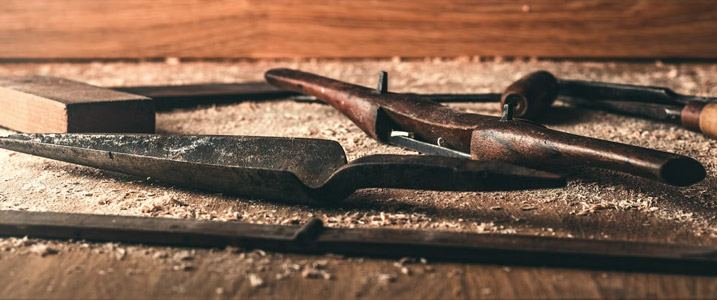
Many boat owners attempt to do their own maintenance to save money and have more control over their vessels. Doing so can be highly rewarding and financially beneficial, especially if you use your boat often.
However, there are many ways this can go wrong. Working on a boat component you don't fully understand or spending too much time or money on your chosen repair could end up resulting in a personal loss.
What steps can you take to practice better DIY boat maintenance?
Tips for Better DIY Boat Maintenance
Practicing maintenance on your own boat will be much smoother and more effective if you can follow these tips.
- Start with the basics. There are certain elements of boat maintenance that almost anyone can handle, so focus on these to start. Learning how to change the oil, swap out filters, and inspect propellers for damage are all tasks that almost any newcomer can confidently perform.
You’ll also want to learn how to check your bilge blower, fuel tanks and pumps for leaks, replace your spark plugs, and lubricate moving parts. If you're not sure how to do any of these things, consult your owner’s manual, which should have detailed instructions for how to conduct regular maintenance.
Otherwise, you can consult YouTube videos from boat maintenance experts to watch live demonstrations of these tasks in action.
- Know what’s “normal.” One of the most important aspects of boat maintenance is recognising when something is abnormal or “off.” Noticing that your boat is making a weird noise or noticing a point of damage or corrosion could be a sign that you need to take action proactively. Fixing a problem while it's small and completely under your control can eventually save you money and reduce the headache of a bigger problem. But in order to do this effectively, you first need to understand what is “normal” for your boat. Pay close attention to how your boat looks, how it sounds, and how it feels when you're using it.
- Understand your limitations. Too many people overestimate their abilities when they first start practicing DIY boat maintenance. After a couple of successful part replacements or oil changes, they feel like they can do anything – which is not exactly the case. Overconfidence is a leading cause of bad decisions here. If you're confused about what you're doing, or if you're totally inexperienced with a complex process, consider taking your book to a professional instead of trying your luck on your own.
- Keep things clean and dry. A great strategy for preventing corrosion and deterioration is to keep everything on your boat clean and dry as much as you can. Obviously, since you'll be on the water regularly, it's impossible to keep your boat entirely free of moisture. But do what you can to keep your boat’s surfaces clear and relatively free of accumulated moisture.
- Treat mould and mildew proactively. On the deck, on your seats, and in various other sections of your boat, mould and mildew can be both annoying and destructive. When you first see signs of mould and mildew beginning to form, treat the growth proactively so it doesn't continue to spread.
- Apply protective coatings every season. Wax and gel coatings can protect your vessel from damage, as long as you apply these coatings proactively every season. Invest in better products, follow the directions carefully, and apply these things consistently to see the best possible results.
- Watch out for corrosion. Corrosion can quickly compromise the structural integrity and functionality of your vessel if you aren't careful. Look for signs of corrosion all over your boat, especially in and around moving parts.
- Replace moving parts proactively. Speaking of moving parts, when you notice something wrong with any important piece, like a belt, a spark plug, or a pump, replace that part proactively. Don't gamble with something that may or may not serve its function, or else you may run into a bigger problem later.
- Store your boat responsibly. Most long-term problems with boat deterioration can be prevented with proper storage. Covering your boat tightly, cleaning it before storage, and choosing the right storage facility can all greatly minimise the damage your boat accumulates during winter and when not in use. Check on your boat regularly when in storage.
- Don’t forget about boat trailer maintenance. Finally, incorporate some kind of boat trailer maintenance as well, if you plan on transporting your boat in any capacity. Make sure your boat trailer is functional and secure before transporting.
Learning From the Best
Nobody learns how to be a boat maintenance expert in a vacuum. For most people, mastering the art of boat maintenance is a slow and gradual process – and one almost entirely dependent on your interactions with other people. If you're new to the world of boat maintenance, or if you just want to improve your skills faster, it's a good idea to learn from people who have already mastered this craft.
For example, visit the local dock or boat club and get to know some of the other boat owners in your area. See if any of them practice their own maintenance and if they'd be willing to teach you a few things. Alternatively, you can contact a boat repair facility or another boating institution and ask to shadow them as they conduct routine maintenance on vessels like yours. In time, you'll pick up new skills, you'll gain renewed confidence, and you'll be in a position to apply better repairs to your vessel.
Before you can start practising maintenance, you need an actual boat to call your own. If you're brand new to the world of boating, or if you're ready for an upgrade to your current vessel, you've come to the right place. At TheYachtMarket, we have thousands of new and used boats for sale, so if you're ready to start looking for your next vessel, check out our selection today!